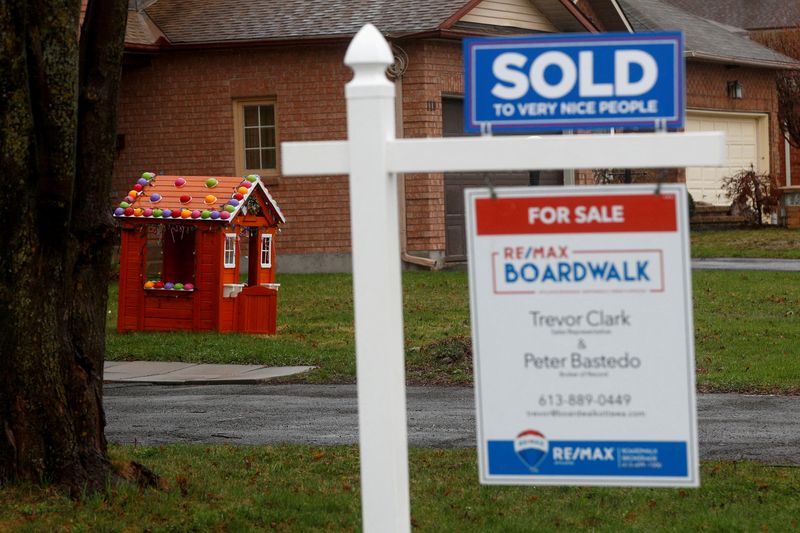(Reuters) - Canada's financial watchdog on Wednesday released new guidelines for lenders aimed at protecting mortgage holders facing high borrowing costs or who are at the risk of defaulting.
The Financial Consumer Agency of Canada (FCAC) said federally regulated financial institutions, including banks, must work to help at-risk consumers by "providing tailored support" that could include measures such as waving penalties or other costs.
The FCAC said two-thirds of mortgage holders are having trouble meeting their financial commitments.
Canadians are facing the burden of high interest rates forcing them to either increase their monthly contribution or extend their amortization, while high inflation has pressured many with the rising cost of living.
"Today's economic environment is characterized by high household debt, increased cost of living and higher interest rates. As a result, some mortgage holders are at risk of not keeping up with their regular payments," the FCAC said.
In many cases, variable-rate mortgage holders with fixed payments are paying only the interest portion of their mortgage, slowing down the rate at which they will pay off their debt.
In some cases, mortgage holders are entering negative amortization, meaning their fixed payment does not cover the entire interest portion, leading to accruing interest and a rise in the total amount they owe.
FCAC expects lenders to implement policies and procedures such as waiving prepayment penalties, waiving internal fees and costs, not charging interest on interest, and extending amortization.
However, the Office of the Superintendent of Financial Institutions has urged lenders to tackle risks from mortgage extensions, saying though it could help borrowers, it would keep them in debt for longer.
Canada's top banks have said they are already working with customers to provide assistance, that could include skipping a payment or extending their amortization.

"Banks in Canada are already working with customers at risk, offering a range of advice and measures to help keep their mortgages in good standing," said The Canadian Bankers Association (CBA), which represents more than 60 banks.
The CBA said it was reviewing the agency's guidelines.